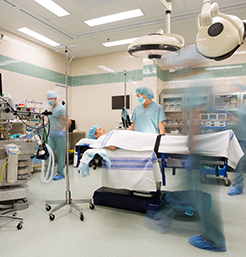General Information
The Athens Euroclinic Cardiology Department and Cardiac Catheterization Lab form part of the Cardiology and Cardiothoracic Surgery Division, one of the most popular departments handling heart conditions in Greece.
The core mentality of the Department is to offer healthcare services of the utmost quality, comparable to the largest centers abroad. A case in point is the fact that the Department attracts many foreign patients from Cyprus, the UK, Russia and Kuwait.
Medical Infrastructure & Technology
- Wards equipped with telemetry and capable of continuous patient monitoring
- Coronary Care Unit (CCU)
- Intensive Care Unit (ICU)
- Stress test
- 24-hour arterial pressure monitoring
- 24-hour heart rate monitoring (Holter monitor)
- Tilt test
- Ultrasound, esophageal Doppler monitoring and stress echocardiogram (stress echo)
- Pacemaker/defibrillator monitoring
- Lipoprotein check-up
- Hypertension Clinic
- Heart MRI
- Angiographies
- Multiple vessel & acute infarction angioplasty
- Transcatheter aortic valve implantation (TAVI)
- Percutaneous mitral valvuloplasty
- Percutaneous mitral valve repair
- Renal denervation
- Interatrial communication closure
- Arteriovenous communication embolization
- Diagnostic electrophysiological assessments
- Arrhythmia diagnosis and ablation
- Atrial fibrillation ablation
- Intracardiac and cardiac ablation for ventricular tachycardia
- Implantation of pacemakers, defibrillators and biventricular pacemakers
So far, the results of these procedures have been very satisfactory compared to international standards and have been published in Greek and foreign journals.
These diagnostic and treatment approaches cover the entire range of modern clinical and interventional cardiology techniques and are performed 24/7.
Advanced - Specialized Techniques
The most suitable method for treating myocardial infarction is to immediately open the occluded artery using interventional methods (angioplasty or stent placement). This service is offered 24/7 and can be performed within 60 minutes from the patient’s arrival to hospital, by experienced interventional cardiologists, who carry out over 200 angioplasties annually.
Atrial fibrillation is the most common type of arrhythmia encountered in adults. It is the most frequent cause of hospitalization for heart patients. Once it develops, it doubles the risk of hospitalization and mortality. It is encountered in 3% of people over 60 and 11% of people over 70.
Until recently, interventional methods (ablation) were moderately successful. The new techniques developed at the Athens Euroclinic and the advanced technology at hand allow for radical management of the majority of arrhythmias. The Athens Euroclinic is considered a center of excellence in this field, with significant scientific publications on the topic.
Until recently, these conditions were treated with open surgery. However, currently, they may be treated percutaneously by interventional cardiologists.
This method can be used to treat aortic valve stenosis in high-risk patients who cannot undergo open cardiothoracic surgery.
Arterial hypertension has become a modern epidemic, affecting approximately 25% of the adult population in western societies. The main risk factor for cardiovascular diseases in the western world is inadequate high blood pressure monitoring. It is responsible for 60% of strokes and around 90% of infarctions, which result in seven million deaths annually.
Hypertension is usually managed through a broad range of medications, which do carry complications, though. For many patient categories, such as diabetics, a combination of four or five medications is required in many cases to manage hypertension. Until recently, there was no interventional method available for this condition. Renal denervation, which was performed for the first time in Greece at the Athens Euroclinic, can be used to treat resistant hypertension, significantly reducing the administration of medications (for selected patients).
Extensive myocardial infarction may lead to heart failure in younger patients due to myocardial tissue necrosis. Physicians can now regenerate this tissue by using regenerated bone marrow cells taken from the patient. The 1st Cardiology Clinic, in cooperation with the Agios Savvas Hospital Immunology Department, was one of the first centers worldwide to perform this innovative technique. The first clinical results have already been announced in renowned medical journals.
Research activities
The Athens Euroclinic Cardiology Department is involved in plenty of research activities. The wide range of research topics include arrhythmias, study of angioplasty indications and systematic analysis of coronary circulation. A dedicated research team has been set up exclusively for this purpose, consisting of cardiologists and engineers from Harvard Medical School, MIT and Brown University in Boston. All research is funded by research grants and own funds.
The Athens Euroclinic Cardiology Department scientists regularly attend all the major international cardiology conferences, while over 200 of their articles have been published in renowned cardiology journals since 1998. In Greece, the Cardiology Department research team has published the most extensive selection of articles on stress echo, angioplasty with coated stents and atrial fibrillation ablation.

